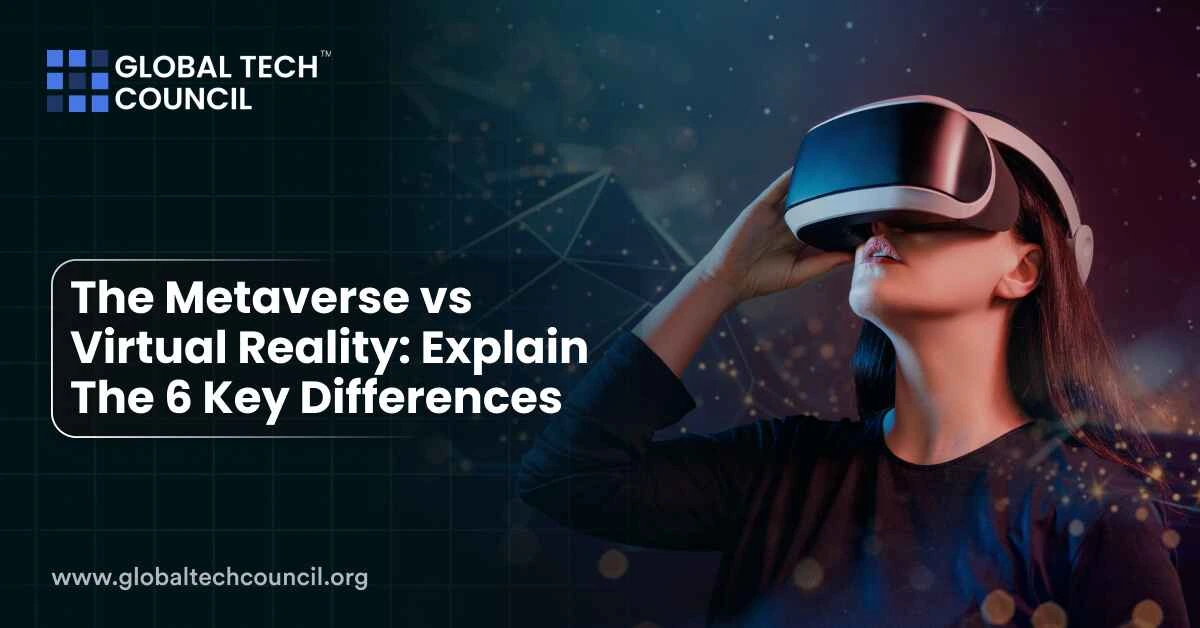
Since October 2021 Facebook has had its new name as Meta. The term relates to new advancements in the world of the internet known as the Metaverse. Although this new advancement includes aspects of virtual reality, it has quite a different concept. Since the announcement, many skeptics and questions have been arising. So what is the exact meaning of Metaverse and how is it different from virtual reality?
In this article, we will be looking into six critical differences between Metaverse and virtual reality.
Understanding and familiarity of the concept
When it comes to understanding concepts of both virtual reality and Metaverse, people are more familiar with VR. On the other hand, Metaverse is a very new concept and is mostly vague for people. As Mark Zuckerberg, this new phenomenon will allow users to feel the content instead of just watching it. Hence when we compare descriptions of Metaverse with what we know about VR, the information is pretty much vague. Moreover, there is a possibility that event tech companies are still discovering the potential of the Metaverse.
As per Facebook, rebranding was important to support the development of Metaverse. Further, they say that they want you to use a name for their brand that can better represent their current project. Aside from this, Facebook was also facing image issues due to its poor data privacy systems. As Metaverse utilizes blockchain technology, it is an excellent opportunity for Facebook to clear its reputation issues. However, some technical experts also claim that Metaverse is only for causing a buzz among the public. And its main focus is to enhance the current internet framework.
Ownership over the technology
With the launch of any new technology, one of the concerns of people relates to its ownership. Here, as Facebook is the owner of Oculus Rift, it maintains an important position in the advancement of virtual reality. But it does not depend on the technology or has the right to define it.
Again when it comes to Metaverse, Facebook comes among one of the companies that support its development. Some other big companies that are using Metaverse for developing digital platforms include Microsoft. In fact, there is a launch of a mixed reality platform called Microsoft mesh. It contains very similarities to Metaverse services.
Furthermore, considering various statements by Facebook, it seems that the company will be helping in developing some aspects of Metaverse. However, it will not call itself the sole platform of Metaverse. Hence, it implies that Metaverse will extend itself to more than one company.
Facility of shared virtual worlds
Basically, Metaverse represents a shared virtual space that anybody can access through the internet. However virtual reality technologies already allow users to have the same experience. Moreover, the concept of virtual space resembles existing VR programs. Here, user identification will happen in their personal avatars. Also, they will be able to conveniently interact with one another and virtual locations. In addition to this, users can build or buy virtual products and environments, for example, NFTs. The primary difference we can point out here is the size limitation of current virtual worlds. But Metaverse has the potential to provide access to the whole internet.
Use of headsets
As per information, Metaverse won’t need you to use a virtual reality headset to access its services. But experts say that a major portion of its services will be available for VR headset users. Further, it implies that the line between using virtual reality and browsing the internet will become unclear. Hence we can expect that VR headsets might become useful for performing activities that we usually do via smartphones. In case Metaverse gets to be as widespread as Mark Zuckerberg is expecting, virtual reality might become just a niche product.
Technical limitations
It is evident that Metaverse does have potential beyond virtual reality. In fact, it is compatible with every AR device or any type of device that connects to the internet. Hence it implies that Metaverse comes with a variety of features that virtual reality cannot support alone. For example, it can use AR technology for its implementation in the real world. Moreover design of the virtual spaces will be accessible at any place without any requirement of the headset.
Potential and applications
Metaverse seems to have more extensive potential and applications than virtual reality. Today we use virtual reality technology in sectors like sports education and therapy. However, people still consider it as a form of entertainment.
On the other hand, Metaverse has more scalability in terms of applications. In fact, it is a comparatively more improved version of our current internet. Furthermore, experts believe that it can shift the way people work, browse the internet and use social media. Also, there is a considerable number of people who still don’t use virtual reality, but in the case of Metaverse, it seems very unlikely.
Can Metaverse take the place of the internet?
If we considered the impact of virtual reality, it did not reach the mark that it should have. Furthermore there are specific limitations on the time people can wear a VR headset. But in the case of Metaverse, people with or without headsets can access its services. Hence, we can expect a better impact of it in comparison to virtual reality.
Conclusion
Despite the fact that Metaverse comprises more advanced potential and services, it might not replace the internet as a whole. On one hand VR headsets offer an improved alternative to the screen of the computer, Metaverse will offer an improved alternative to our internet. However neither of these intended to replace any other technologies on hand.
If you want to stay up to date with all the current news of the tech world and get notifications on the availability of valuable courses and certification, check out the GLOBAL TECH COUNCIL. The platform comprises numerous valuable pieces of content that can help you boost up your knowledge on any tech-related subject.